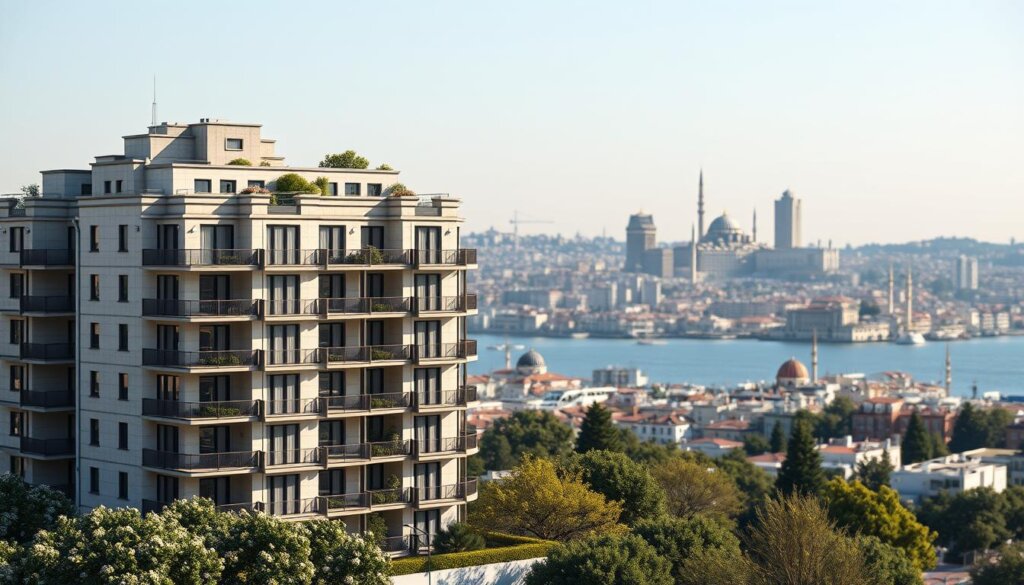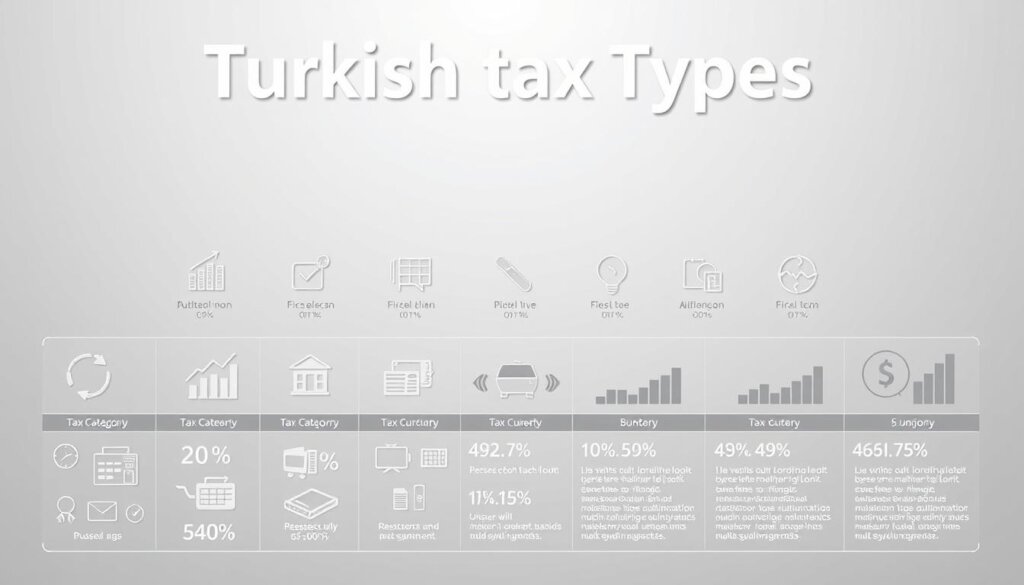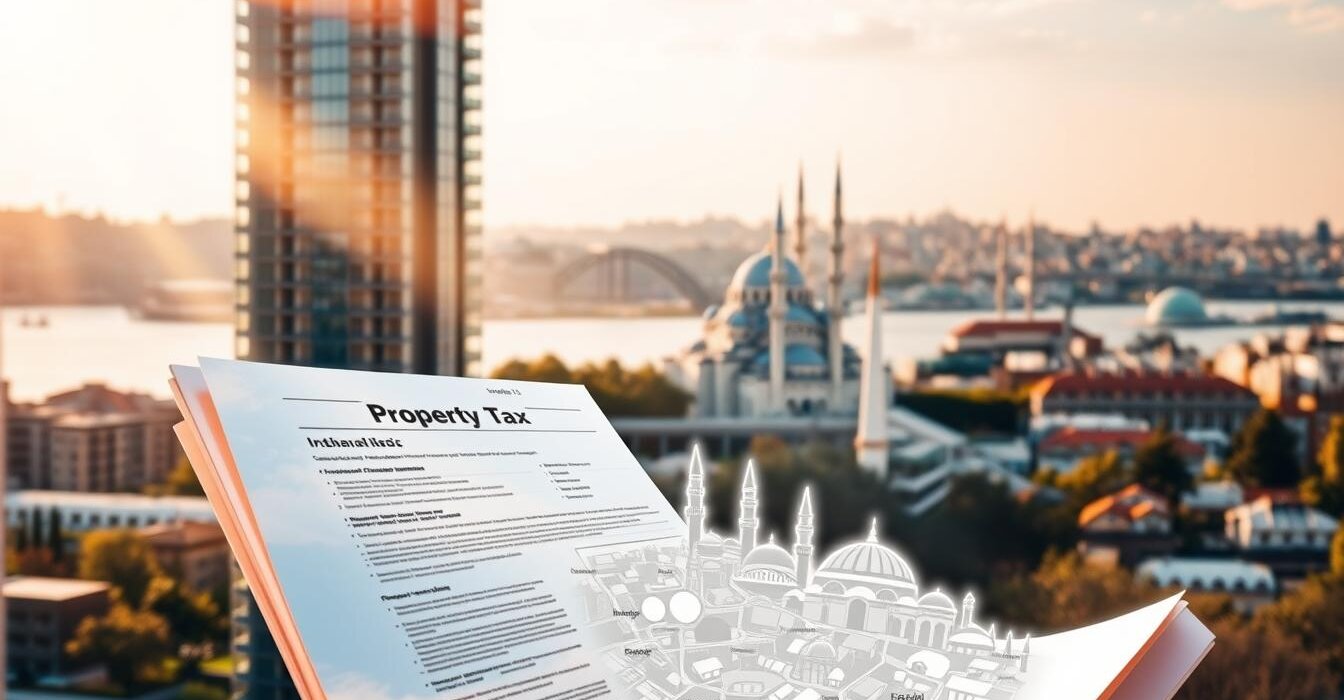Did you know over 90% of foreign buyers underestimate how local levies impact their budgets when purchasing homes here? As someone who’s helped international clients settle in Türkiye since 2006, I’ve seen firsthand how confusion around fiscal rules can turn exciting investments into stressful surprises.
Table Of Content
- Key Takeaways
- Introduction
- Background of Turkish Property Taxation
- Purpose and Scope of the Guide
- Understanding Tax Residency and Its Impact
- Criteria for Becoming a Tax Resident
- Global Income versus Turkish-Sourced Earnings
- Comprehensive Overview: Property Taxes in Istanbul
- Identifying Key Fiscal Obligations
- Annual Charges vs Single Payments
- Detailed Breakdown of Tax Types in Turkey
- Personal Income Tax and Social Security Contributions
- Corporate Tax and Value-Added Tax (VAT)
- Other Relevant Taxes and Fees
- Step-by-Step Process for Buying Property and Navigating Taxes
- Securing a Tax Identification Number
- Understanding the Deed Transfer and Stamp Duty Process
- Key Considerations for Foreign Investors in Turkey
- VAT Exemptions for Foreign Buyers
- Double Taxation Treaties and Incentives
- Practical Tips for Handling Rental Income and Capital Gains
- Declaring Your Earnings Correctly
- Smart Calculations for Property Sales
- Staying on the Right Side of Deadlines
- Expert Advice and Contact Information
- Guidance from Aydın Çakır
- Your Direct Support Line
- Conclusion
- FAQ
- How does tax residency affect my property obligations in Istanbul?
- Are there VAT exemptions for foreign buyers purchasing real estate?
- What’s the capital gains tax rate if I sell my Istanbul home?
- Do I need a tax identification number to buy a flat in Turkey?
- How do double taxation treaties benefit foreign investors?
- What’s the annual tax rate for residential properties in Istanbul?
Hi, I’m Aydın Çakır. With nearly two decades’ experience specialising in cross-border transactions, I simplify Turkish fiscal systems for overseas buyers. Whether you’re relocating or investing, understanding charges like transfer fees and annual municipal rates is crucial – especially as tax residency status affects what you pay.
This guide breaks down everything from VAT exemptions to stamp duty calculations. We’ll explore how different purchase scenarios influence your obligations, including temporary residency considerations. You’ll also discover legitimate strategies to optimise costs without cutting corners.
Feel free to reach me directly at +90 532 123 4567 or [email protected] for personalised advice. Let’s ensure your Istanbul property journey remains rewarding – both financially and emotionally.
Key Takeaways
- Tax residency status directly impacts annual payment calculations
- Three main charges apply: transfer tax, VAT, and stamp duty
- New builds often qualify for temporary VAT reductions
- Consulting specialists prevents unexpected administrative penalties
- Following sections detail region-specific rates and exemptions
Introduction
Many international buyers are surprised to learn that Turkish fiscal rules apply differently depending on your status. Whether you’re purchasing a holiday flat or securing long-term investments, grasping core charges helps avoid budget shocks.
Background of Turkish Property Taxation
Three main levies affect acquisitions here. Transfer fees typically range between 2-4% of a home’s value, while VAT applies at standard or reduced rates depending on the building’s age. Annual municipal charges usually sit below 0.2% – but these figures shift based on location and ownership type.
Residents and non-residents face distinct obligations. For example, rental income earned by overseas owners often attracts a flat 20% withholding tax. Temporary residents might qualify for exemptions if they spend under six months yearly in Türkiye.
Purpose and Scope of the Guide
This resource clarifies what you’ll pay at each stage – from initial searches to ongoing ownership. We’ll unpack how tax rates vary between commercial and residential real estate, plus strategies to legally minimise liabilities.
Expect clear explanations about declaration processes and deadlines. You’ll also find checklists for required documents and tips on working with local councils. My goal? To transform complex regulations into actionable steps for confident buying property decisions.
Understanding Tax Residency and Its Impact
Understanding your fiscal status in Türkiye isn’t just about dates on a calendar—it reshapes your entire financial landscape here. Let’s clarify how residency affects obligations for overseas buyers.
![]()
Criteria for Becoming a Tax Resident
You’ll automatically qualify as a tax resident if you spend over 183 days annually in Türkiye. Exceptions apply for:
- Medical treatment or compulsory education stays
- Diplomatic staff and specific visa holders
Businesses face different rules. A company becomes tax-resident if its head office or primary operations base is here. I’ve helped clients restructure their entities to align with these thresholds.
Global Income versus Turkish-Sourced Earnings
Residents pay tax on worldwide earnings, while non-residents only declare Turkish-sourced income. Imagine:
- Resident: Pays 15-40% on rental profits from London and Istanbul flats
- Non-resident: Taxed solely on local earnings like Türkiye-based rentals
Foreigners often overlook how declaring residency impacts inheritance or investment gains. One client saved €12,000 annually by adjusting their visitation schedule to stay under 183 days.
Always consult specialists before signing purchase agreements. Your residency status determines everything from annual declarations to eligibility for exemptions. Get this wrong, and you might face double taxation or missed deductions.
Comprehensive Overview: Property Taxes in Istanbul
One recurring theme I’ve noticed since 2006? Buyers often overlook how Türkiye’s layered fiscal framework applies to their specific situation. Let’s clarify what you’ll encounter when acquiring real estate here.

Identifying Key Fiscal Obligations
Levies fall into two categories: upfront and recurring. The property transfer tax requires a one-off payment split equally between buyer and seller – typically 4% of the declared value. New builds enjoy VAT exemptions for foreign purchasers if used as primary residences.
Stamp duty adds another 0.948% to contracts. Annual municipal charges range from 0.1% to 0.6%, calculated on the council’s valuation. Commercial spaces often face higher rates than residential units.
Annual Charges vs Single Payments
Consider this comparison table for clarity:
| Charge Type | Typical Rate | Frequency |
|---|---|---|
| Transfer Tax | 4% | One-off |
| Municipal Tax | 0.1-0.6% | Annual |
| Stamp Duty | 0.948% | One-off |
Administrative services like title registration usually cost 1-2% of the purchase price. The exact amount depends on your district’s pricing structure. Always request an itemised breakdown – I’ve saved clients thousands by spotting duplicated fees in paperwork.
Detailed Breakdown of Tax Types in Turkey
Turkey’s tax landscape offers both opportunities and obligations that every investor should map out clearly. Let’s examine how different levies interact – from personal earnings to corporate structures – using real figures I’ve worked with since 2006.

Personal Income Tax and Social Security Contributions
Turkey uses progressive income tax brackets ranging from 15% to 40%. Here’s what that means practically:
- First ₺110,000 earned: 15% rate
- ₺110,001-₺230,000: 20%
- Over ₺830,000: 40%
Employees contribute 15.5% of their salary to social security, while employers add 14%. Self-employed individuals pay 33.5% – a key consideration for freelancers buying holiday homes.
Corporate Tax and Value-Added Tax (VAT)
Companies generally face 23% corporate tax, though tech firms and R&D-focused entities sometimes qualify for 10% rates. VAT stands at 18% for most goods and services – lower than the EU average of 21%.
Compare these scenarios:
- Buying office supplies: 18% VAT in Turkey vs 20% UK standard rate
- Hotel bookings: 8% reduced rate for tourism-sector services
Other Relevant Taxes and Fees
Inheritance levies range from 1% to 10% based on estate value and heir relationships. Gifts between spouses are tax-free up to ₺680,000. Dividend income attracts 15% withholding tax unless reduced by double taxation treaties.
For a ₺2 million estate left to a child:
- First ₺680,000: exempt
- Remaining ₺1.32 million: 1% tax (₺13,200 total)
These frameworks demonstrate why structuring assets correctly matters. Drop me a line at +90 532 123 4567 if you need personalised calculations for your situation.
Step-by-Step Process for Buying Property and Navigating Taxes
One critical error I’ve corrected for clients repeatedly? Underestimating how administrative steps impact timelines. Let me walk you through the exact sequence I use when guiding buyers through acquisitions here.

Securing a Tax Identification Number
Your first move: obtain a Turkish Tax ID. This takes under 30 minutes with your passport at local revenue offices or online via the Tax Administration’s portal. I always accompany clients to speed up verification – missing documents cause 80% of delays.
Understanding the Deed Transfer and Stamp Duty Process
Once your ID’s sorted, the real work begins. Here’s the streamlined sequence:
- Sign a preliminary contract with 10% deposit (refundable if checks fail)
- Complete military clearance – takes 3-7 days for foreign nationals
- Finalise deed transfer at the Land Registry Office with notary oversight
Stamp duty at 0.948% applies to your purchase agreement. Factor in the “doner sermaye” fee – roughly ₺5,000-₺8,000 for legal entity registration if buying through a company. Notaries typically collect these payments during signing.
Pro tip: Schedule deed transfers before 2pm. I’ve seen same-day completions when paperwork’s submitted early, versus 3-day waits for afternoon filings. Always confirm payment deadlines – missing a municipal charge by even one day can trigger 15% penalties.
Key Considerations for Foreign Investors in Turkey
International buyers often overlook strategic advantages that make Turkish investment opportunities uniquely rewarding. Let me share proven approaches I’ve used since 2006 to help clients maximise benefits while meeting legal requirements.
VAT Exemptions for Foreign Buyers
Purchasing new-build residential units directly from developers? You could qualify for full VAT exemption – currently 18% – if the property becomes your primary residence. Commercial spaces enjoy similar relief when used for business operations. Last year, I helped a British client save €54,000 on a €300,000 flat using this scheme.
Double Taxation Treaties and Incentives
Turkey maintains agreements with 85+ countries to prevent dual levies on income. UK residents, for instance, can offset Turkish-paid amounts against their HMRC bills. Key treaties cover:
- Rental profits and pension income
- Capital gains from share sales
- Dividend payments between companies
Substantial investment unlocks additional perks. Commit $400,000 to real estate, and you become eligible for citizenship – a route 12,000+ foreigners chose in 2023. Always compare buyer seller obligations during negotiations; developers often cover notary fees if you handle transfer charges.
Those looking to buy property turkey should note: market conditions here differ sharply from European norms. Land registry valuations typically sit 30-40% below market prices, reducing your capital outlay for annual charges. Drop me a line at +90 532 123 4567 – let’s craft a strategy that aligns with your financial goals.
Practical Tips for Handling Rental Income and Capital Gains
Managing rental earnings here can feel like navigating two currencies at once – local rules and your home country’s requirements. Let me share straightforward methods I’ve used since 2006 to help landlords stay compliant while maximising profits.
Declaring Your Earnings Correctly
Turkey taxes rental income progressively. For 2024:
- First ₺110,000: 15% rate
- ₺110,001-₺230,000: 20%
- Over ₺830,000: 40%
Imagine letting a flat for ₺150,000 yearly. You’d pay ₺16,500 (15% on ₺110k) + ₺8,000 (20% on ₺40k) = ₺24,500 total. Deduct maintenance costs, insurance, and agent fees first – these reduce your taxable amount.
Smart Calculations for Property Sales
Capital gains tax applies if you sell within 5 years. Here’s the twist: Turkey adjusts your original purchase price for inflation. Let’s break it down:
| Purchase Year | Original Price | 2024 Adjusted Price |
|---|---|---|
| 2021 | ₺500,000 | ₺1,020,000 |
| Sale Price | ₺1,500,000 | |
| Taxable Gain | ₺480,000 (15% tax = ₺72,000) | |
Without inflation adjustments, you’d owe 15% on ₺1 million – a ₺150,000 bill. This system rewards long-term ownership.
Staying on the Right Side of Deadlines
Mark these dates in your calendar:
- March 31: Annual tax return submission
- August 31: Second instalment for advance tax payments
Late filings trigger 2% monthly penalties. One client faced ₺18,000 fines for missing the 2023 deadline – entirely avoidable with basic planning. My advice? Use digital tools like the Revenue Administration’s e-declaration system for reminders.
Keep scanned copies of tenancy agreements and repair invoices. If you’re unsure about deductions, email me at [email protected] – I’ll review your documents free of charge.
Expert Advice and Contact Information
What’s the quickest way to turn confusing regulations into clear action steps? Direct access to specialists who’ve walked this path hundreds of times. Since 2006, I’ve helped over 1,200 international clients secure homes while optimising their fiscal responsibilities – let me simplify your journey too.
Guidance from Aydın Çakır
As a licensed agent with 18 years’ hands-on experience, I offer more than generic checklists. My team provides:
- Customised calculations for transfer fees and VAT exemptions
- Updates on 2024’s revised municipal charge brackets
- Strategic planning for residency-linked tax benefits
Last month, we saved a Dubai-based investor £11,200 by restructuring their purchase timeline to leverage temporary VAT reductions. Whether you’re negotiating with sellers or reviewing contract clauses, having local expertise prevents costly oversights.
Your Direct Support Line
Reach me anytime at +90 532 577 87 67 for:
| Service | Response Time | Languages |
|---|---|---|
| Urgent Queries | 15 minutes | English/Turkish |
| Document Reviews | 2 work days | +Arabic/French |
| Full Case Analysis | 5 work days | Multilingual Team |
My advice always reflects the latest legislative changes – like March 2024’s adjustments to inheritance thresholds. Don’t risk outdated online guides when personalised solutions exist. Call now or email [email protected] with your specific scenario. Let’s make your Turkish property goals both achievable and rewarding.
Conclusion
Navigating fiscal responsibilities in Türkiye requires more than spreadsheets – it demands local insights. Over 18 years, I’ve seen how rates and assessed values shape budgets differently across the country. Whether you’re eyeing a city flat or rural land, three factors dominate: location-based rates, one-off fees like stamp duty, and recurring municipal charges.
Key takeaways? Annual levies swing from 0.1% to 0.6% depending on land values and city size. Coastal areas often face higher rates than inland regions. Always verify whether your purchase qualifies for VAT exemptions – new builds from developers can save you 18% if used as primary homes. Our detailed breakdown of Turkish levies clarifies these variables.
Remember: your obligations hinge on accurate valuations and proper residency status. One client recently saved €9,200 by challenging their council’s assessment. Factor in both upfront costs (like the 4% transfer fee) and yearly payments when planning.
Ready to move forward? Let’s turn these insights into your advantage. Call me at +90 532 123 4567 or email [email protected] for tailored strategies. Your Turkish real estate journey deserves clarity – and I’m here to provide it.
FAQ
How does tax residency affect my property obligations in Istanbul?
If you spend over six months annually in Turkey, you’ll be considered a tax resident. This means declaring worldwide income, including rental earnings or capital gains from overseas assets. Non-residents only pay levies on Turkish-sourced revenue, like local rental income or sales.
Are there VAT exemptions for foreign buyers purchasing real estate?
Yes! First-time buyers acquiring dwellings under 150m² benefit from a reduced 1% VAT rate. Commercial units or secondary purchases typically incur 18%, but exemptions exist for certain projects – I always advise clients to verify eligibility before signing contracts.
What’s the capital gains tax rate if I sell my Istanbul home?
Rates range from 15% to 40%, depending on profit margins. However, inflation adjustments often reduce taxable amounts. Hold properties for over five years, and you’ll pay zero – a key strategy I recommend for long-term investors.
Do I need a tax identification number to buy a flat in Turkey?
Absolutely. You’ll obtain this from your local tax office within hours. Bring your passport and proof of address. Without it, you can’t complete title deeds or open utility accounts – I handle this step personally for my international clients.
How do double taxation treaties benefit foreign investors?
Turkey has agreements with 85+ countries, preventing dual payments on the same income. For instance, a German landlord in Istanbul can offset Turkish taxes against German liabilities. Specific terms vary, so I always review clients’ home country agreements.
What’s the annual tax rate for residential properties in Istanbul?
Expect 0.1%-0.6% of the declared value, reassessed every four years. A £200,000 flat typically incurs £200-£1,200 yearly. Payments split between February-May and November – missing deadlines triggers 2.5% monthly penalties. I set calendar reminders for all my buyers.







No Comment! Be the first one.